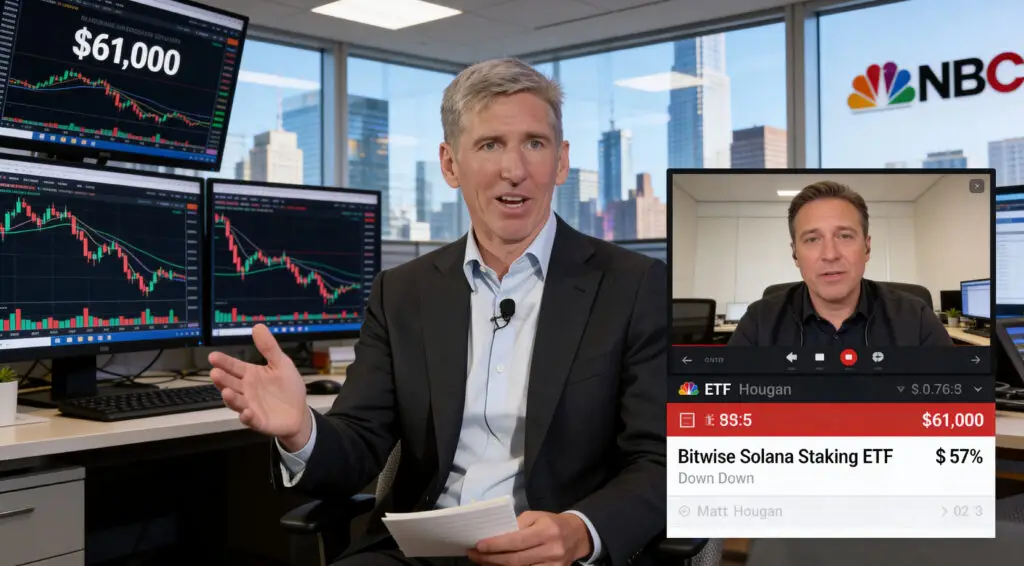Abu Dhabi Doubles Down on Bitcoin via BlackRock’s IBIT Trust
Abu Dhabi’s sovereign wealth fund, Mubadala, has increased its exposure to Bitcoin during the volatile first quarter of 2024 by acquiring additional shares in BlackRock’s iShares Bitcoin Trust (IBIT), according to a U.S. Securities and Exchange Commission (SEC) filing released Thursday.
The Form 13F disclosure revealed that as of March 31, Mubadala held 8,726,972 shares of IBIT, with a total value of $408.5 million. This marks an increase of 491,000 shares from the 8,235,972 held at the close of Q4 2024. The purchase came despite a downturn in the crypto market and a drop in IBIT’s share price from $54 at the end of last year to $47 by the end of March.
The move suggests a strategic, long-term commitment to Bitcoin exposure rather than a reactionary, short-term trade. By capitalizing on the dip in IBIT’s share price, Abu Dhabi has positioned itself to benefit from future recoveries. As of today’s market, IBIT shares have rebounded to $58, pushing the value of Mubadala’s holdings above $512 million.
Navigating the Volatility: A Long-Term Vision
While many investors reacted cautiously to the bearish sentiment that dominated Q1 2024, Mubadala’s actions reflect a broader confidence in Bitcoin as an asset class. The fund’s decision to expand its holdings amid market downturns underscores a willingness to weather short-term volatility for long-term gains.
At the end of 2023, Mubadala’s IBIT shares were worth approximately $436 million. Though its Q1 valuation dipped to $408.5 million due to the market decline, the recent uptick in Bitcoin’s price has since reversed that loss. Mubadala’s strategy appears to hinge on cost-averaging into Bitcoin-related products, leveraging dips as buying opportunities.
The performance of IBIT mirrors the broader movements in Bitcoin’s price. As the crypto market surged late last year, so too did ETF shares. Conversely, Q1 brought a period of correction, only to be followed by a resurgence in the second quarter that is already benefiting early buyers like Mubadala.
A Closer Look at Other Institutional Moves
Mubadala wasn’t the only institution disclosing significant Bitcoin exposure on Thursday. Citadel Advisors also filed its Form 13F, revealing ownership of 3,139,079 IBIT shares valued at $146.9 million. The firm increased its stake from the previous quarter and signaled a diversified Bitcoin strategy by also reporting $366 million in put options and $676 million in call options related to iShares Bitcoin products.
Citadel’s strategy contrasts slightly with Mubadala’s, reflecting an active trading approach with exposure across derivatives in addition to spot ETFs.
In stark contrast to both Mubadala and Citadel, the State of Wisconsin Investment Board (SWIB) revealed that it had completely liquidated its position in BlackRock’s IBIT, selling all $321 million worth of shares. The liquidation signals a shift in strategy, though SWIB continues to maintain a $19 million stake in Coinbase’s publicly traded COIN stock.
Other major holders of IBIT include Goldman Sachs—currently the largest institutional shareholder—alongside Millennium Management, Avenir Group, and Barclays Bank. Their presence highlights the growing mainstream acceptance of Bitcoin through regulated financial vehicles.
Bitcoin ETFs Anchor Institutional Strategy
The rise of spot Bitcoin ETFs like IBIT has enabled traditional and sovereign investors to gain secure, compliant access to Bitcoin exposure without the complexities of direct asset custody. The institutional embrace of such products has accelerated over the past year, with entities like Mubadala playing a pivotal role in legitimizing the asset class.
Mubadala’s increased holdings suggest that sovereign wealth funds are not only comfortable with Bitcoin exposure but are actively seeking opportunities to increase their stake in periods of market weakness.
As the crypto market continues to mature and regulatory clarity improves, the actions of state-backed funds and institutional giants will likely shape the next chapter of Bitcoin’s integration into global financial markets.
Disclaimer: This article is for informational purposes only and should not be considered financial advice. The views expressed may include the author’s personal opinions and do not reflect The Crypto Basic’s official stance. Readers are encouraged to conduct their own research before making investment decisions.















